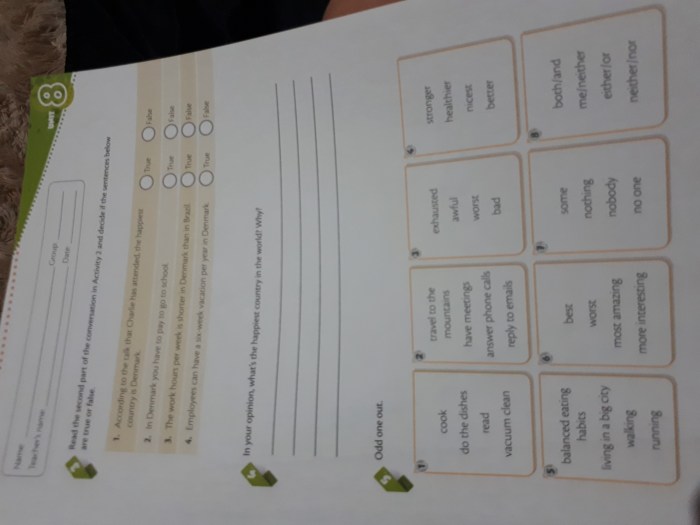Embark on a captivating journey with CNA Progression 2 Unit 7, where you’ll delve into the intricacies of patient care, communication, and ethical responsibilities within the healthcare realm. This unit empowers you with the essential skills and knowledge to excel as a Certified Nursing Assistant.
Throughout this exploration, we’ll uncover the principles of patient-centered care, emphasizing the importance of effective communication and collaboration among healthcare professionals. We’ll also shed light on safety protocols and infection control measures, ensuring the well-being of patients and healthcare workers alike.
CNA Progression Unit 7: Skills and Knowledge
Unit 7 of the CNA Progression focuses on developing essential skills and knowledge for Certified Nursing Assistants (CNAs). These skills and knowledge are crucial for providing competent and compassionate care to patients in various healthcare settings.
Key Skills
- Communication and Interpersonal Skills:CNAs effectively communicate with patients, families, and healthcare professionals to understand their needs, provide information, and build rapport.
- Observation and Assessment Skills:CNAs observe and assess patients’ physical and emotional well-being, monitoring vital signs, and identifying changes in their condition.
- Infection Control and Prevention Skills:CNAs adhere to strict infection control protocols to prevent the spread of infections and protect both patients and healthcare workers.
- Basic Nursing Skills:CNAs perform basic nursing tasks such as assisting with bathing, dressing, feeding, and toileting, promoting patient comfort and hygiene.
- Emergency Response Skills:CNAs are trained to respond to emergencies, including CPR and basic first aid, ensuring the safety and well-being of patients.
Examples of Application
These skills and knowledge are applied daily in healthcare settings:
- CNAs use communication skills to explain procedures to patients, comfort family members, and collaborate with other healthcare professionals.
- Observation skills enable CNAs to detect early signs of infection, changes in patient behavior, or other potential health concerns.
- Infection control practices protect patients from harmful microorganisms, ensuring a safe and healthy environment.
- Basic nursing skills help maintain patient hygiene, comfort, and dignity.
- Emergency response training empowers CNAs to respond effectively to medical emergencies, providing immediate assistance to patients.
By mastering these skills and knowledge, CNAs play a vital role in providing quality patient care and ensuring the well-being of individuals in healthcare settings.
CNA Progression Unit 7: Patient Care
Patient care is a fundamental aspect of a CNA’s role. In Unit 7, you’ll delve into the various types of patient care provided by CNAs, ranging from basic assistance to complex medical procedures. The unit also emphasizes the principles of patient-centered care, ensuring that the patient’s needs and preferences are always at the forefront of your actions.
Types of Patient Care Provided by CNAs
CNAs provide a wide range of patient care services, including:
- Assisting with activities of daily living (ADLs), such as bathing, dressing, and eating
- Monitoring vital signs and reporting any changes to the nurse
- Providing wound care and other medical treatments as directed by the nurse
- Providing emotional support and companionship to patients
li>Assisting with mobility and transfers
Principles of Patient-Centered Care
Patient-centered care is an approach that focuses on the individual needs and preferences of the patient. It involves:
- Treating patients with respect and dignity
- Listening to patients’ concerns and preferences
- Involving patients in their own care planning
- Providing patients with the information they need to make informed decisions about their care
- Working as a team with other healthcare professionals to ensure that patients receive the best possible care
CNA Progression Unit 7: Communication and Collaboration

Effective communication is crucial for CNAs in providing quality patient care. It ensures accurate information exchange, promotes patient understanding, and facilitates teamwork among healthcare professionals.
Collaboration with Other Healthcare Professionals
CNAs work closely with other healthcare professionals, including nurses, physicians, and social workers, to provide comprehensive care to patients. This collaboration involves:
- Exchanging patient information to ensure continuity of care.
- Reporting patient concerns and observations to nurses or physicians for timely intervention.
- Assisting with patient care plans and treatment protocols under the supervision of licensed healthcare professionals.
CNA Progression Unit 7: Safety and Infection Control

Safety and infection control protocols are paramount in healthcare settings to protect patients, healthcare workers, and visitors from harm and the spread of infections. In CNA Progression Unit 7, CNAs learn and adhere to these protocols to maintain a safe and healthy environment.
Safety Protocols
- Patient handling and transfer:Proper techniques ensure patient safety and prevent injuries to both patients and CNAs.
- Medication administration:Safe handling, storage, and administration of medications are crucial to prevent errors and adverse reactions.
- Equipment handling:Proper use and maintenance of medical equipment minimize risks and ensure patient safety.
- Emergency preparedness:CNAs must be trained to respond to emergencies, such as falls, seizures, or fires, to ensure prompt and effective care.
Infection Control Measures
- Hand hygiene:Frequent and thorough handwashing is the most effective way to prevent the spread of infections.
- Personal protective equipment (PPE):Gloves, masks, gowns, and other PPE protect CNAs and patients from exposure to bodily fluids and pathogens.
- Environmental cleaning and disinfection:Regular cleaning and disinfection of surfaces, equipment, and linens reduce the risk of infection transmission.
- Isolation precautions:When caring for patients with infectious diseases, CNAs must follow specific precautions to prevent the spread of infection to others.
Adhering to these protocols is essential for CNAs to fulfill their role in providing safe and effective patient care while protecting themselves and others from harm and infections.
CNA Progression Unit 7: Legal and Ethical Considerations

This unit delves into the legal and ethical responsibilities of Certified Nursing Assistants (CNAs), emphasizing the significance of upholding ethical principles while providing patient care.
The CNA Progression 2 Unit 7 is quite a challenging module. There are so many skills to learn, like medication administration and wound care. It is crucial to have a strong foundation in the basics before moving on to this unit.
If you need a refresher, I highly recommend checking out the Unit 6 Session 2 LETRS . It will provide you with the knowledge and skills you need to succeed in CNA Progression 2 Unit 7.
CNAs have a legal obligation to protect patient rights, maintain confidentiality, and report any suspected abuse or neglect. They must adhere to established policies and procedures to ensure patient safety and well-being.
Ethical Dilemmas, Cna progression 2 unit 7
CNAs may encounter ethical dilemmas in their practice, such as:
- Balancing patient autonomy with their best interests, especially when patients refuse recommended treatments.
- Maintaining confidentiality while reporting suspected abuse or neglect.
li>Providing care to patients with end-of-life decisions, respecting their wishes while adhering to ethical guidelines.
To resolve ethical dilemmas, CNAs should:
- Consult with supervisors, nurses, or other healthcare professionals for guidance.
- Consider ethical principles, patient values, and legal implications.
- Document their actions and decisions clearly and accurately.
CNA Progression Unit 7: Documentation and Reporting

Accurate documentation and reporting are crucial for CNAs as they provide a detailed record of patient care and communication between healthcare professionals. These records are used to track patient progress, identify changes in condition, and make informed decisions about treatment.
Types of Documentation
- Patient Care Plans:Artikels the specific care required for each patient, including medical history, medications, treatments, and goals.
- Progress Notes:Records the patient’s condition, response to treatment, and any changes or updates.
- Incident Reports:Documents any accidents, falls, or other incidents that occur during patient care.
li> Medication Administration Records:Tracks the administration of medications, including dosage, time, and route.
FAQ Insights: Cna Progression 2 Unit 7
What are the key skills required for CNAs in Unit 7?
Unit 7 focuses on developing essential skills such as providing basic patient care, communicating effectively, adhering to safety protocols, understanding ethical considerations, and maintaining accurate documentation.
How does Unit 7 emphasize patient-centered care?
This unit underscores the importance of treating patients with dignity and respect, involving them in decision-making, and tailoring care plans to their individual needs and preferences.
Why is communication crucial for CNAs in Unit 7?
Effective communication enables CNAs to relay patient information accurately, collaborate with other healthcare professionals, and build strong relationships with patients and their families.